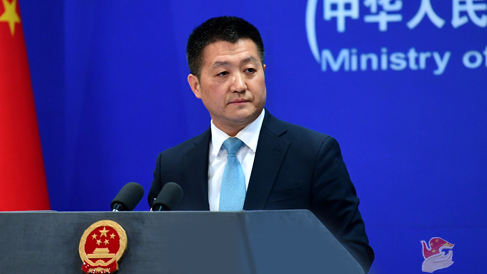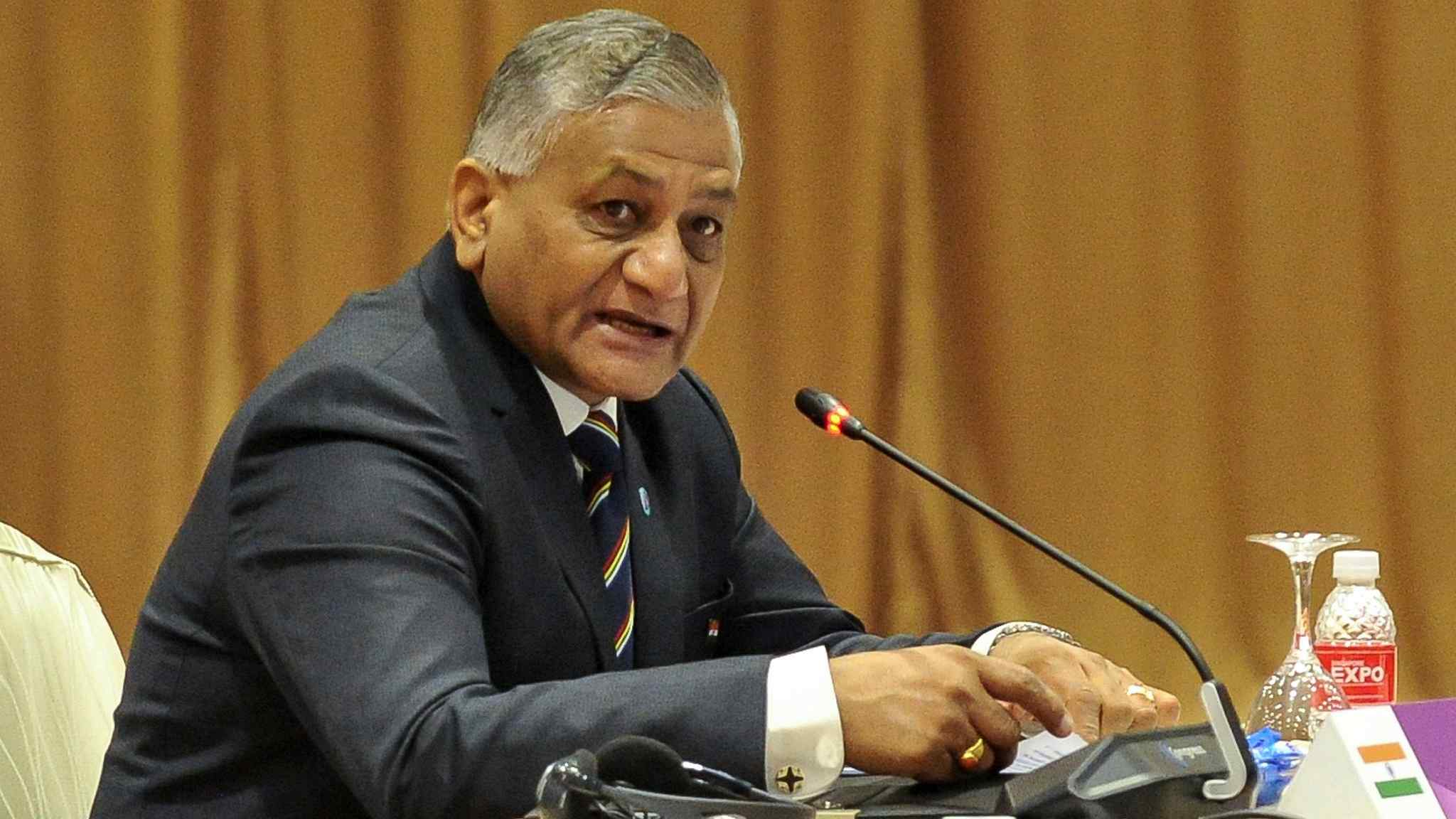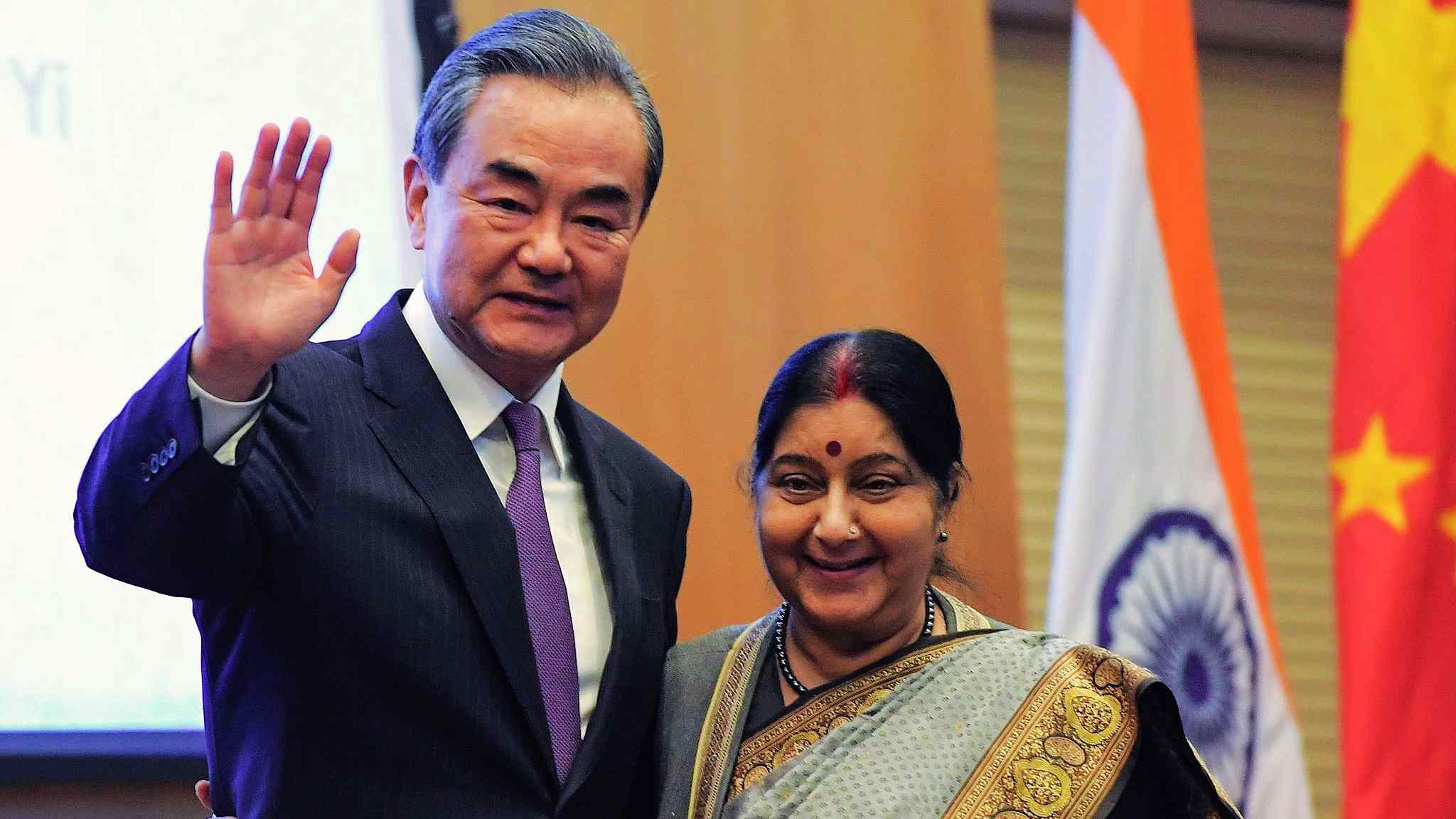
World
14:18, 05-Jan-2019
China-India pragmatic cooperation enters fast lane of development
Updated
13:42, 08-Jan-2019
By Abhishek G Bhaya
01:00

Beijing on Friday asserted that a "healthy and stable" China-India relationship is crucial for world peace and development at a time of growing global uncertainty, also stressing that the Asian neighbors' "pragmatic cooperation has entered the fast lane of development."
"China and India are each other's important neighbor. We are all important emerging markets. China always believes that a healthy and stable China-India relationship is not only in the interests of the two countries and the two peoples, but also conducive to the cause of world peace and development," Chinese Foreign Ministry spokesperson Lu Kang told reporters.
"In the context of growing uncertainty and instability globally, China is willing to work with India to strengthen coordination on international affairs and jointly safeguard the interests of the two countries and the collective interests of the developing countries," he added, responding to similar views expressed by an Indian minister a day earlier.
Citing last April's Wuhan informal summit between Chinese President Xi Jinping and Indian Prime Minister Narendra Modi as a decisive moment in bilateral relations, Lu said that the historic meeting has opened up new prospects.
"Since then, as everyone has witnessed, under the strategic guidance of the two leaders, China-India relations have shown a momentum of overall improvement and development. High-level exchanges have been non-stop, exchanges in various fields have been accelerated, and pragmatic cooperation has entered the fast lane of development," he reiterated.

Indian Minister of State for External Affairs, Gen. V K Singh, speaks during a ministerial meeting at the ASEAN Foreign Ministers' Meeting in Singapore, August 3, 2018. /VCG Photo
Indian Minister of State for External Affairs, Gen. V K Singh, speaks during a ministerial meeting at the ASEAN Foreign Ministers' Meeting in Singapore, August 3, 2018. /VCG Photo
Earlier on Thursday, in a written response to questions posed in the Rajya Sabha, the upper house in the Indian parliament, India's Minister of State for External Affairs Gen. V K Singh emphasized that bilateral ties between the two Asian countries "are a factor of stability" at a time of global uncertainty, saying that both sides have agreed to work towards strengthening the closer developmental partnership for mutual benefit.
"In our multifaceted engagement with China, in areas where we have commonality of views, engagement has been expanded and upgraded in recent years. Issues where there are differences are being handled through dialogue to seek a fair, reasonable and mutually acceptable solution based on mutual respect and sensitivity to each other's interests, concerns and aspirations," Singh stated.
"Accordingly, both sides have been working towards utilizing their bilateral dialogue mechanisms to promote mutually beneficial cooperation in a wide range of areas. Both sides agree that progress in bilateral relations should be guided by the consensus reached between their leaders; that at a time of global uncertainty, India-China relations are a factor of stability; and that the two countries must not allow their differences to become disputes," he said.
The Indian minister added that New Delhi "has also remained engaged in dialogue with China, which is a member of the Nuclear Suppliers Group (NSG), on matters related to India's membership of the NSG."
Ties on the upswing

China's State Councilor and Foreign Minister Wang Yi (L) and Indian External Affairs Minister Sushma Swaraj pose after the inaugural session of an India-China media forum in New Delhi, December 21, 2018. /VCG Photo
China's State Councilor and Foreign Minister Wang Yi (L) and Indian External Affairs Minister Sushma Swaraj pose after the inaugural session of an India-China media forum in New Delhi, December 21, 2018. /VCG Photo
China-India ties have been on the upswing in recent times. Xi and Modi have met four times since the Wuhan summit in signs of the growing importance of bilateral ties between the Asian neighbors.
Both nations have decided to expand the bilateral trade volume, and the two sides have achieved constructive outcomes at the 21st Special Representatives' Meeting on the China-India Boundary Question in Chengdu, capital of southwest China's Sichuan Province.
Chengdu also hosted the China-India "Hand-in-Hand 2018" joint military drill aimed at strengthening counter-terrorism capabilities of the two armies, where the bonhomie between the participants from both sides was palpable.
Also last month, China's State Councilor and Foreign Minister Wang Yi visited New Delhi, where he joined India's Minister of External Affairs Sushma Swaraj to launch the China-India Mechanism on Cultural and People-to-People Exchanges.
Wang also reiterated the call for the Chinese "dragon" and Indian "elephant" to dance in a "duet" and avoid a "duel" as Swaraj stressed the need for both nations to collaborate in leading the region to an "Asian Century."
The two nations have also initiated a "China-India Plus" model of cooperation to undertake joint projects in other countries. A joint training of Afghan diplomats and a proposed Uzbek-Afghan rail link project are the first signs of this unique collaboration approach being set in motion.
Analysts say that with both nations poised to lead global growth in the coming decades, China-India ties will be crucial in shaping the emerging world order.

SITEMAP
Copyright © 2018 CGTN. Beijing ICP prepared NO.16065310-3
Copyright © 2018 CGTN. Beijing ICP prepared NO.16065310-3